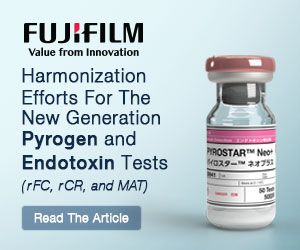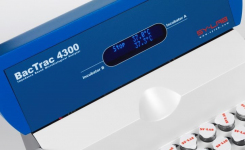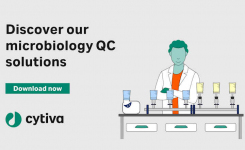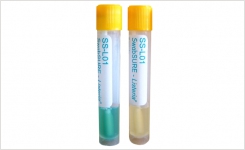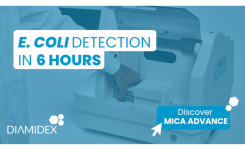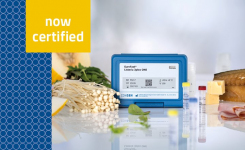CLSI Publishes Updated Antimicrobial Susceptibility Testing Standard
go back to news archives| The Clinical and Laboratory Standards Institute have recently published the annual update of the well-known antimicrobial susceptibility testing standard, Performance Standards for Antimicrobial Susceptibility Testing; Twenty-First Informational Supplement (M100-S21), which is arranged in tabular format and provides updates of the latest recommendations for detecting emerging resistance of aerobic bacteria. Therapeutic breakpoints included in the supplement are applied to MIC values determined by standard methods in order to assign an interpretation of susceptible, intermediate, or resistant. This essential information assists clinicians with drug selection and interpretation, and provides quality control and troubleshooting guidelines for clinical microbiology laboratories using the procedures standardized in CLSI documents Performance Standards for Antimicrobial Disk Susceptibility Tests; Approved StandardTenth Edition (M02-A10) and Methods for Dilution Antimicrobial Susceptibility Tests for Bacteria That Grow Aerobically; Approved StandardEighth Edition (M07-A8). Clinicians depend heavily on information from the clinical microbiology laboratory for treatment of infected patients, especially those that are seriously ill. The clinical importance of antimicrobial susceptibility test results requires that these tests be performed under optimal conditions within laboratories that have the capability to provide results for the newest antimicrobial agents. Richard B. Thomson, Jr., PhD, D(ABMM), FAAM, Evanston Hospital, NorthShore University HealthSystem, and the member subcommittee and working groups that developed the document says, 'We review and use M100 supplements to stay current with methods needed for accurate antimicrobial susceptibility testing and result interpretation. Clinical microbiologists like myself realize that susceptibility values and interpretive criteria accompanying the culture report are the most important components of the microbiology report. Whether one uses manual or automated susceptibility testing methods, the M100 document is required knowledge for technical, administrative, and medical personnel. In fact, we review content each year with our Infectious Diseases Department and our antimicrobial pharmacist, who refers to our M100 copy so much that we have suggested she get her own!' |
NOTE: This item is from our 'historic' database and
may contain information which is not up to date.
Source : Clinical and Laboratory Standards Institute View Company Information
Posted on January 11, 2011


